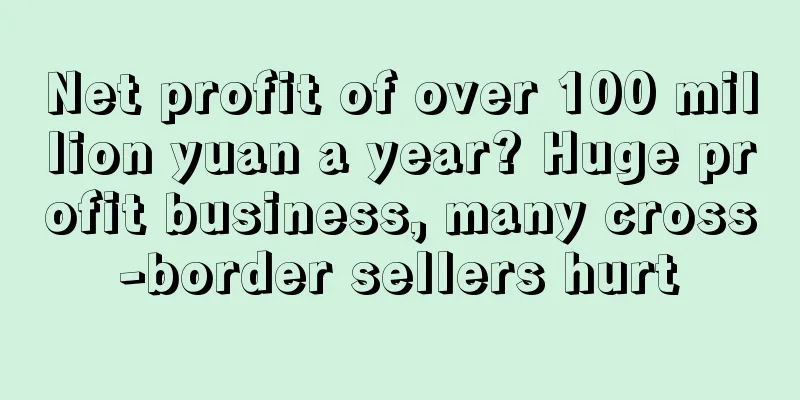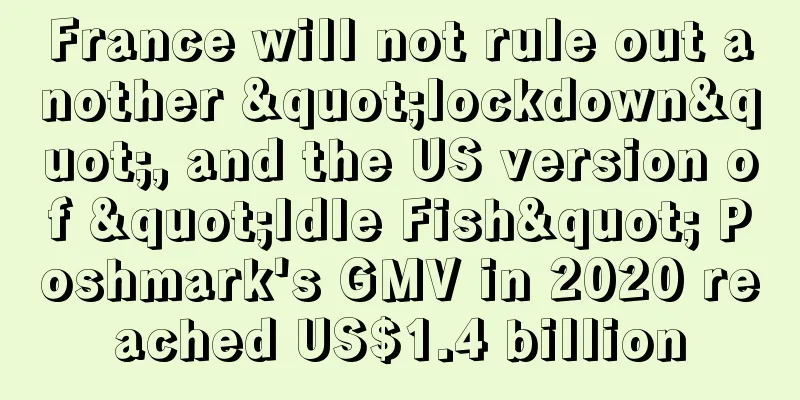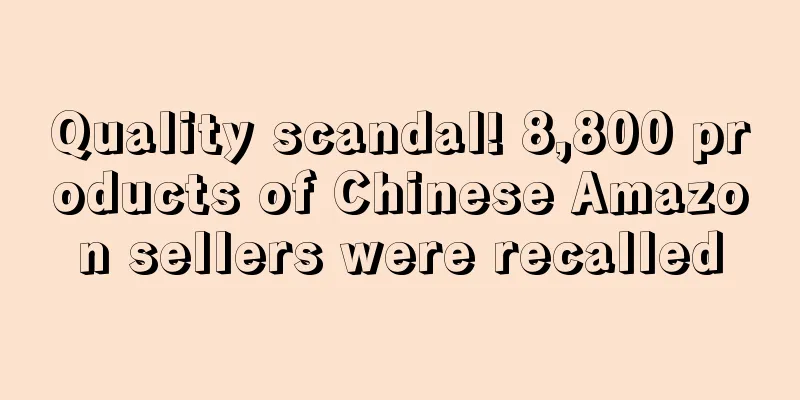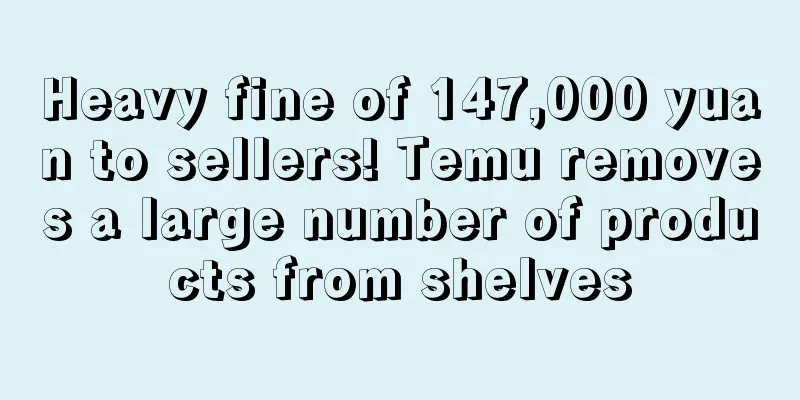Net profit of over 100 million yuan a year? Huge profit business, many cross-border sellers hurt

|
In the process of going overseas, infringement complaints are a realistic problem that cross-border e-commerce sellers cannot ignore. Whether you are a novice in the cross-border circle or an experienced senior seller, it is usually difficult to get out of the infringement dilemma. These infringement issues may involve many aspects, such as product design, trademarks, appearance and other intellectual property areas.
There is nothing wrong with protecting one's own intellectual property rights, but a large number of patents and trademarks are deliberately applied for by some people for economic benefits. These people take advantage of the patent system to register patents for some common/hot-selling products or technologies, forming patent barriers. When other sellers use these patented products or technologies without knowing it, they will fall into their trap, followed by huge infringement claims.
This behavior not only causes huge troubles and losses to cross-border e-commerce sellers, but also has a negative impact on the healthy development of the entire industry.
Patent trolls’ internal strife reveals the lucrative industry behind them
If you type the word "infringement" in a certain industry forum , you can see many sellers' help posts: "My product has been complained of patent infringement, how can I file a complaint?" "I have encountered infringement of XXX's appearance patent, is there anyone who can help me?" "I was sued for hundreds of thousands of yuan for XXX infringement, and the link has been removed, is there any service provider who can solve this problem?"...
In fact, a large part of the infringement complaints faced by cross-border e-commerce sellers come from patent trolls. From an operational point of view, they usually apply for patents in the United States and other places first, and then complain about the sellers' infringements and demand huge compensation. Sellers are very angry about this.
Although everyone knows that there is a gray industry chain behind this, the organizers and operation methods are always shrouded in mystery. Not long ago, a complaint case published by the Black Cat Complaint Platform revealed a corner of the mystery.
According to the complainant, after attending the training at XXXX Blue Bull Territory Business Service Center, he privately signed a profit-sharing agreement with the center's instructor. Later, when the patent was granted, he sought compensation for 16 million yuan, but the instructor came to him and asked for 30% of the money. He thought he had already paid the training and software fees and felt he had no obligation to share the money he had received. Moreover, the instructor did not help him with the operation. In addition, he thought he was deceived by the previous agreement, so he wanted to cancel it.
Three pieces of information can be clearly obtained from the above pictures and texts: First, this disgraceful "cross-border infringement claim" is called "overseas monopoly"; second, there are some specialized companies/institutions that are organizing and conducting relevant training, and will share the profits from successful patent claims; third, this is a very profitable black-hearted business; fourth, their goal is very clear, that is, to target cross-border e-commerce sellers.
Previously, a piece of news that "a team of four patent trolls made 25 million yuan a year" was widely discussed, so industry insiders more or less knew that overseas monopoly is a very profitable gray business. However, the reality may be more exaggerated than people know.
We can get a glimpse of this from a consultation received by a lawyer online. The consultant asked: " My ex-husband transferred the cross-border monopoly patent to his father before the divorce. Now I can't divide his claim funds normally. Is this concealment of the transfer of property illegal? It is about 9 million US dollars . "
Someone in a book also said : "Even if the monopoly party gets the smallest share of 3%, the results are still very scary. There are many people who make hundreds of millions a year by playing the monopoly game."
Driven by huge profits, a large number of people rushed into this gray business, including even some cross-border e-commerce sellers.
In recent years, competition in the cross-border e-commerce industry has intensified, and some people have begun to be unable to keep up, so they have started to engage in this unscrupulous business.
Earlier, Yien.com reported that a cross-border e-commerce seller who had been in the industry for many years switched to trademark registration last year. The seller claimed that he had not made much money in the industry for many years, and he lost nearly 200,000 yuan due to the TRO. So he entered this trap with the idea of "others messing with me, so I will mess with others".
Sellers who fall into this pit can only let themselves be manipulated, or pay huge settlement fees , brand licensing fees , or bear the pain of sharing the sales revenue with them every month.
300 Amazon sellers escaped a disaster due to disagreements between students and institutions
Of course, behind such huge profits, the fees charged by the so-called training institutions are not low. From what we know so far, these institutions charge mainly according to the membership level. Different levels not only have different fees, but also different rights and interests.
An institution told a student who was planning to sign up for the excellent membership that the offline teachers of the VIP members were more careful. According to another student, the VIP membership fee was as high as 280,000 yuan.
This is just the initial fee. After the patent is approved and the claim is successfully made, the students will have to share the profits with the institution in a certain proportion. This is also where the two sides have disagreements, because some students feel that they have been deceived by the institution into sharing the profits, so they do not want to share the money anymore and they go to the Internet to seek help from lawyers. It is also because of this that more information behind this industry has been exposed.
Someone said during the consultation that because the initial membership fee was already very expensive, he and the agency had agreed that the other party would not take a share. However, once the claim was received, the agency would find ways to share the money, such as upgrading the software and launching a new claim plan. " Last September, they said that increasing the cooperation of old members and using the new version of the software would make it faster to develop business. Without sharing the software, only the old version could be used. Many members were deceived into signing the profit-sharing contract. The least share was 10%, and the most share was 30%. Some members had to share more than 20 million yuan a year with them . "
Another consultant also said that he had spent nearly 300,000 yuan to become a VIP member of a training institution, but the service experience was still very poor. It took the patent officer more than ten days to modify the patent, and another two weeks to provide the design drawings. After the claim was made, the other party took away two or three million yuan on the grounds of operating software upgrades. Later, after a merchant signed an authorization license for an overseas store with him, he came to ask for a share of the profits.
Another person told the lawyer during the consultation that when he applied for a patent, he was optimistic about kitchen products, but his mentor asked him to apply for a pet patent. In the end, he had no choice but to apply for a pet patent. In January this year, he suddenly discovered that if the kitchen cleaning patent that was rejected was approved, there would be at least 300 infringing sellers on Amazon alone , which is several times more than the infringing merchants who applied for pet patents. " I asked them the reason, but they blamed me for not having a strong opinion. In the end, they shirked the responsibility. And the pet patent also asked me to give them 30% ( 4 million ). I was so angry that I blocked them . After more than a month, they disabled my software , and I had to pay 20,000 to enable it again . "
According to comprehensive information, these institutions have their own so-called training system, around which they are equipped with mentors, patent officers, etc., and there is also a set of auxiliary systems specifically for developing merchants. With such precise sniping, it is difficult for sellers not to fall into the trap! Patent trolls Overseas Stores |
<<: Net loss of 1 billion! Well-known brands face delisting
>>: AliExpress sellers must read: these categories are booming with semi-hosting
Recommend
What is foodcraft? foodcraft Review, Features
Foodcraft has grown from selling vegan yogurt, spr...
Net profit increased by 94% in half year, and Xgimi Technology's performance soared with great sales on Amazon!
While many of the projector brands under the big ...
A Shenzhen seller was defrauded by someone else’s name and an urgent statement was issued!
The end of the year is often the peak season for ...
Average salary may increase by 7.7%, and Indian people's disposable income is expected to increase
In 2019, average compensation at Indian companies...
What is IPS Smart Package? IPS Smart Package Review, Features
IPS Smart Parcel (Shenzhen Smart Parcel Service Co...
Revenue of more than 2.1 billion in 9 months! Shenzhen Dashao "kills" the siege in the trillion-level track
The 3C track is now a well-deserved "super r...
With nearly 10 million US dollars in a single month, he created a legend in the top ten global shipments on AliExpress
In 2024, an unfamiliar name appeared in the top 1...
What is HighRadius? HighRadius Review, Features
HighRadius is a fintech SaaS service provider tha...
French second-hand e-commerce platform Vestiaire Collective receives 178 million euros in financing
According to foreign media reports, the French se...
Attention! Typhoon landed, Yantian and Shekou ports stopped container delivery services
Before one wave of troubles subsides, another wav...
Building a virtual shopping mall: Shopee and Singapore's IMM reach a cooperation
To cater to the accelerated development trend of ...
The online market is worth $10.26 billion, and the global plastic packaging market cannot be underestimated
Due to the rapid development of global e-commerce...
When marketing on social platforms, sellers should pay attention to these demands of consumers!
“ Since the pandemic began, about half of adults ...
What is Amazon Moments? Amazon Moments Review, Features
Amazon Moments is a service program released by A...
Shopee's GMV in the second quarter reached US$15 billion, and Russia's Ozon released its Q2 financial report
Shopee's second quarter GMV reaches US$15 bil...









